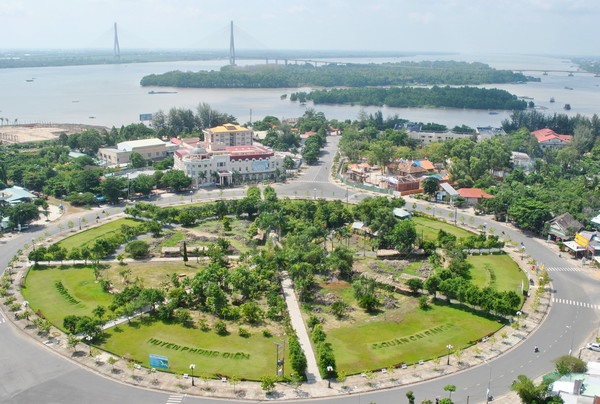Gross capital formation in the last three years in the Mekong Delta city of Can Tho was VND157 trillion (US$6.82 billion).

Gross capital formation in the last three years in the Mekong Delta city of Can Tho was VND157 trillion (US$6.82 billion).
Public investments accounted for VND56.6 trillion ($2.46 billion), private capital for VND 96.1 trillion ($4.2 billion) and foreign money for the remaining VND4.1 trillion ($178 million).
“These have contributed to sustaining the economic growth of the city at 7.56 per cent each year,” Nguyen Van Hong, director of the city’s Department of Planning and Investment, told Viet Nam News Agency.
By the end of this year the city’s economy is expected to be 1.4 times the size it was in 2015, with a per capita income of VND80.5 million ($3,500).
The poverty rate has dropped from 5.12 per cent in 2015 to 1.55 per cent now.
All this has been possible due to proper investment in education, healthcare, culture, tourism, and environment.
Official development assistance funds were mainly used for developing key infrastructure and protecting the environment.
The Government has invested in a number of infrastructure works in the city, including upgrade of National Roads 80, 91 and 91B and dyke along the Can Tho River.
Several works are set for completion, including the Vam Cong Bridge, Lo Te - Rach Soi Road and bridges on National Road No 80.
Construction of the Children’s Hospital, Heart Hospital, Mental Hospital, Traditional Medicine Hospital, Tourism College, Healthcare College, Political College, and Chau Van Liem Temple has been completed.
At the same time the city has upgraded 118 schools and built the Viet Nam – South Korea Industry and Technology Incubation and Science and Technology Application Centre.
Its retail and other infrastructure, including convenience stores, mini supermarkets and shopping malls, is excellent as is tourism infrastructure like accommodation and attractions.
The Can Tho International Airport, ports and upgraded roads, including inter-regional and inter-provincial ones, have served to attract an increasing number of tourists.
Thanks to the investments, the city has received a face lift, has good urban infrastructure and created new urban attractions. There is a walking bridge, dyke and park along the river, Vincom building and the five-star Muong Thanh Hotel.
The city has also upgraded canals, increased greenery, installed water supply and waste treatment systems including water treatment plants.
“The city has managed such great accomplishments thanks to leaders’ proper instruction and oversight and co-operation between central and local authorities,” Hong said.
“Furthermore, the city has greatly improved its investment environment, attracted local and foreign investors and created favourable conditions for people to establish start-up businesses and for enterprises to expand and improve their competitiveness.”
Its position in the provincial competitiveness index has improved for the last three years. Last year Can Tho ranked 10th out of 63 provinces, up from 11th in 2016 and 14th the year before.
In the provincial governance and public administration performance index (PAPI) and provincial public administration reform index (PAR Index) the city was among the top 10 in the country last year.
To promote investment, Hong suggested the city should have specific policies with respect to investment, finance and budget like subsidising interest for organisations and individuals borrowing for carrying out important socio-economic projects.
“The city should continue to improve its investment environment, simplify administrative procedures, and promote co-operation among local authorities in supporting investors.
“I hope more local and foreign investors come to Can Tho in the near future.” — VNS





